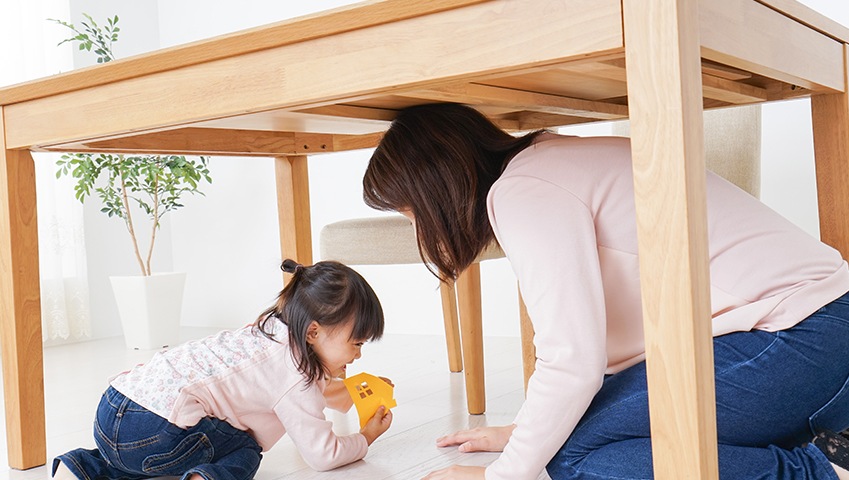
How to Survive an Earthquake
One of the most destructive natural disasters, earthquakes cannot be predicted and can happen just about anywhere, anytime. In order to increase our chances of survival, we must prepare in advance and learn what to do when an earthquake strikes. Here are some tips about how to survive an earthquake.
Before the Earthquake:
- Prepare emergency supplies such as radio, batteries, flashlights, first aid kit, medical supplies, blankets, cooking fuel, water and food which will be enough for two weeks.
- Arrange your home for safety: Store heavy objects on lower places. Do not hang heavy mirrors or pictures above the places you often sit or sleep.
- Anchor heavy furniture such as refrigerators and bookcases so that they don’t fall when an earthquake strikes.
During the Earthquake:
If you are in a vehicle:
- Stop quickly at a safe place and stay seated in the vehicle, and wait until the earthquake is over. The metal roof will save you from the debris falling from buildings.
- Continue driving very carefully after the earthquake is over. Don’t forget that big earthquakes have aftershocks, so don’t rush to your home.
If you are in a building:
- The most widely accepted practice during an earthquake is the "drop, cover and hold on" approach. You take cover under an object like a table to avoid falling object from hitting you.
- Another method is known as the "triangle of life". It is recommended to lie down next to furniture so that if a wall falls, it will create a crawl space in which you can survive.
- Cover your head and neck using your arms and do not move until the earthquake is over. Also, be aware that there may be aftershocks.
- When the earthquake is finished, get out of the house slowly and check for any fires or anything dangerous that can cause fire at home.
- Stay away from damaged areas until a police officer, a plumber, a fire fighter, or relief worker inspects the area and pronounces it safe to enter.
If you are outdoors:
- Stay away from buildings, street lights and anything that can fall.
- Don’t move and wait for some time after the first earthquake is over. Because aftershocks might be dangerous for you.
After the earthquake:
- Check for injuries and help people around you stay in a safe place.
- If your house is badly damaged, you should leave it until it is inspected by a safety expert.
- If you smell gas, make everyone go outside and open all the windows and doors. Report the leak to the gas company and fire department. Don’t use any electrical device during this period.